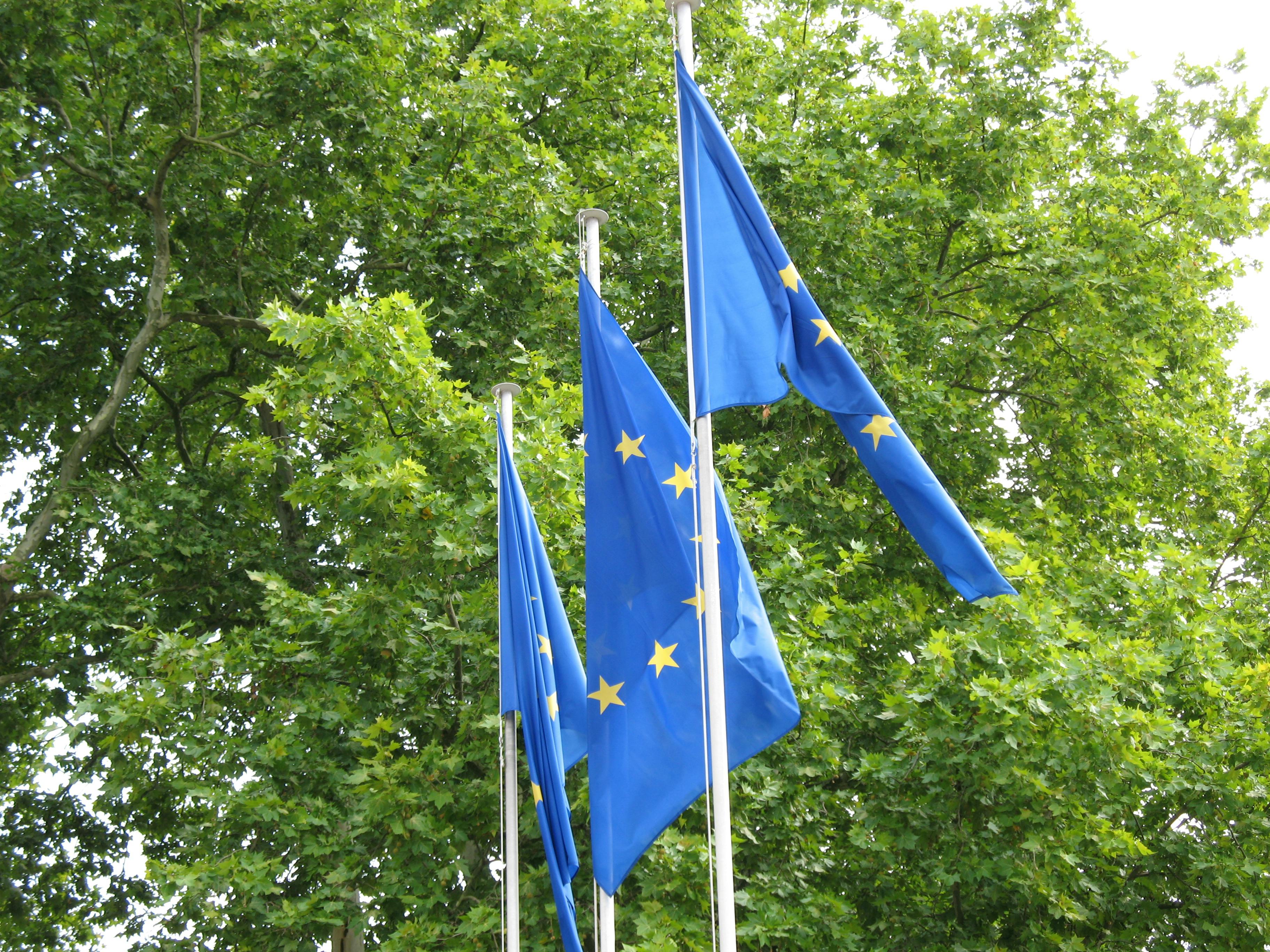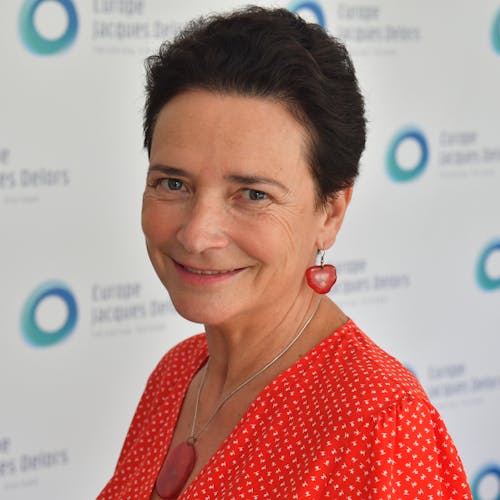What will happen to the Green Deal after the European elections?
The world today is faced with an accelerating triple crisis: climate change, biodiversity loss and pollution. In this context, it is essential for the European Union to maintain and reinforce its Green Deal agenda. The decarbonisation of the European economy – and the associated quest for reliable sources of raw materials – will be a central issue during the upcoming mandate. However, decarbonisation should not come at the expense of ambitious measures in other areas, such as agri-food, ocean protection, trade and international cooperation.
In addition, the EU is increasingly confronted with an instrumentalisation of the Green Deal, especially in the run-up to the European elections. Populist parties across the EU are feeding a discourse which asserts a fundamental conflict between green policies and economic prosperity and calls for a “pause” on new environmental regulation for the benefit of the economy. Opposing environmental and climate protection with economic competitiveness relies on false premises, ignores the fundamentals of sustainable development and risks hindering progress on crucial initiatives, which are necessary to reach the climate targets.
This is why political parties should emphasise the vital necessity of the Green Deal for citizens and the economy. In this first blogpost out of two, our analysts at Europe Jacques Delors examine what may happen to the Green Deal after the elections and point to the risks for the EU’s sustainability agenda in the face of domestic opposition from part of the industry and agriculture, foreign opposition from some of our trade partners and a difficult geopolitical context.
In light of these challenges, it is crucial that politics and civil society stay mobilised to uphold and strengthen the Green Deal going into the next mandate. In the upcoming second blogpost, our analysts will highlight approaches the EU can and should pursue to address the risks identified below and maintain this triple sustainability agenda – economic, social and environmental – after the European elections.
Geneviève Pons, Director-General and Vice-President
After the backlash on “green” policies in the last months, we should not expect the European Commission to come up with a “Green Deal 2.0” agenda in the upcoming mandate. Instead, a linkage between economic security, competitiveness and sustainability issues is likely, especially in a political context in which policies are increasingly perceived through a security lens. The EU will also have to focus on the implementation of existing legislative files, as many of the passed green transition proposals will require further efforts from institutions at European, national and local level. Finally, the EU should also focus much more on developing climate adaptation measures: while the focus on climate targets is important and necessary, we must already start adapting to climate change now to ensure the long-term well-being of citizens in Europe, ranging from water management to food security. The biggest danger lies in the lacking political will of decision makers to take the necessary decisions to fight the climate crisis, even if they are painful and expensive in the short term. If the EU wants to keep its legitimacy as a “green frontrunner” on the global stage, it will have to step up its game. Instead of giving in to right-wing populist forces, EU leaders should stick to a green and fair transition and put much more effort in fighting the political instrumentalisation of sustainability policies.
Sophie Pornschlegel, Director of Studies
The EU is navigating through a complex web of challenges, both domestically and internationally. Among these are escalating geopolitical tensions driven by the US-China rivalry and Russia's invasion of Ukraine. Meanwhile, there is a growing sentiment of “green exhaustion” among European constituencies fuelled by concerns over unfair competition from China and imports from countries with lower environmental standards. These dynamics are poised to shape the EU's post-election agenda, which will most likely be increasingly driven by considerations of competitiveness, supply chain resilience and economic security. As a result, the Green Deal as we know it will most likely undergo transformations after the European elections, yet the imperative should remain unchanged: the EU must continue to pursue strong environmental and climate action. The main challenge ahead lies in finding the right balance between advancing sustainability objectives and safeguarding EU interests and competitiveness.
Cláudia Azevedo, Policy Analyst, Greening Trade
The latest European Climate Risk Assessment report is clear: Europe is the fastest-warming continent in the world due to human-induced climate change. The climate and biodiversity crises are having an increasingly severe negative impact on agriculture. The environment, and therefore food systems, are on the verge of collapse. Maintaining sustainability as one of the key objectives of the next Commission is a non-negotiable element if the EU is to maintain and even strengthen the competitiveness of the EU's agriculture and food system. However, polarisation against any greening measures is already leading the EU institutions to remove green conditionalities from the Common Agricultural Policy (CAP) - signalling a setback of more than 10 years in terms of environmental objectives. This is a regression that neither the EU nor the world can afford, given the transnational nature of food insecurity and climate change. We need a stronger evidence-based and farmer-centred commitment to sustainability from the EU, which can only be achieved through inclusive policymaking and science-based proposals. To achieve this, the EU needs to focus on targeting a wider range of farmers, along with their specific needs and constraints – and not have industry or trade at the core of its policy design.
Arianna Lombari, Policy Analyst, Agri-food
The Green Deal’s trajectory will obviously depend on the political landscape and the priorities of the newly elected European leaders. However, and while the outcome of the elections remains uncertain, it is (worryingly) evident that most parties do not mean to meet the targets the Deal has set. Therefore, while the outcome of the elections remains uncertain, the ongoing advocacy work of institutions such as Europe Jacques Delors will prove indispensable. They will continue to play a crucial role in raising awareness and identifying viable pathways forwards, ensuring the effective implementation of what is the most important text of this legislature.
Martin Binachon, Policy Analyst, Ocean
The Green Deal has enshrined ambitious environmental targets within the European legal framework. Many of these objectives are set for 2030, just one year after the end of the next European legislature. However, the EU is not currently on track to achieve them all, whether they are intermediary or final. The EU and its member states must turn the period 2024-2029 into a daring implementation phase of the Green Deal. To give one example, the EU is not on track to meet its target of reducing residual municipal waste by 50% by 2030, as set out in the new circular economy action plan and the zero-pollution action plan. Yet, the EU now has a fairly comprehensive legislative framework aimed at preventing household waste and improving recycling. If the EU is to achieve its waste-related targets, it will need to ensure that these policies are swiftly and rightly implemented by both national and local authorities.
Eliott Valverde, Policy Analyst, Ocean
Going forward, EU policymakers will increasingly link the Green Deal to economic growth and competitiveness objectives. The Green Deal Industrial Plan – and its Net-Zero Industry Act (NZIA) - is one recent example which aims to promote the economic benefits of the transition to climate neutrality. In the coming months and years, we can expect to see a larger reframing of the Green Deal as an instrument to bolster EU economic growth and a focus on policies that can be seen as directly contributing to this goal. We can only hope that ambitious environmental and climate policies are not weakened or neglected even where they impose economic costs in the short term.
Helena van Thiel, Project Assistant








